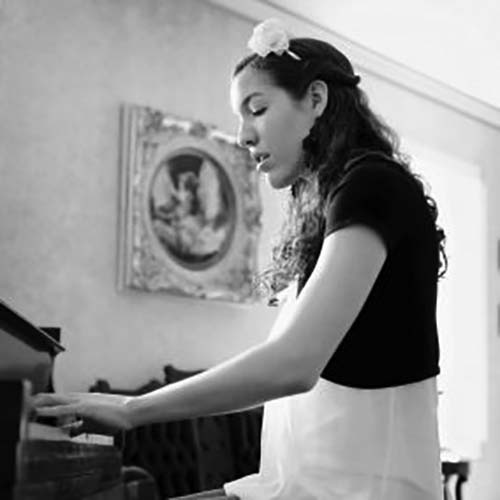developmentally editing characters
Developmentally Editing Characters
-
- LIST CHARACTERS: When developmentally editing characters, first make a list of all characters within the narrative, both main characters and secondary characters.
- SEARCH CHARACTERS: Do a search for each character within the manuscript and identify how many times a character appears by name within the manuscript. Do one or more of your secondary characters appear more often than your main characters? Why? (Perhaps this is simply pronoun usage, or it could be due to a neglect of character treatment.)
- COLOR CODE CHARACTERS: Do a search/replace for each character within the document, highlighting each character with a different font color. Do your main characters appear consistently throughout the manuscript? If not, why? Do you main characters appear in the first chapter or paragraphs? If not, why? (Again, this could be intentional and successful, or it could be a neglect of character treatment.)
- AMALGAMATE MAIN CHARACTERS: Study each character for necessity. Would one or more of your main characters benefit from amalgamation? What would happen if you amalgamated the protagonist and antagonist? (We often write too many characters into our early drafts. This is okay, it is part of the process, AND it can be a fantastic first step toward developing surprisingly deep and diverse characters upon amalgamation.)
- AMALGAMATE SECONDARY CHARACTERS: Study each secondary character for necessity. Would one or more of your secondary characters benefit from amalgamation?
- DIVINE INTRODUCTIONS: Each time you introduce a new character, give this character a “divine moment” in which this character makes an unforgettable impression upon the reader. If a character does not lend itself to a divine moment, maybe the character should be amalgamated into another character or cut altogether from the narrative.
- CHARACTER TIMELINES: Using Excel or some of other software, create a timeline of your characters, main and secondary, beginning with their birthdays and continuing to the last date of the narrative. Add place details, global events, national events and community events to the timeline.
- CYCLICAL DEVELOPMENT: Developmentally editing characters is a cyclical process. With each major revision of the work, repeat the above steps, always looking for ways to tighten characterizations within the narrative.
Why Online Writing Workshops?
Online writing workshops present the best of both worlds for creative writers: creative isolation and craft interaction. The New Yorker article by Louis Menand, “Show or Tell: Should Creative Writing be Taught?” proposes the perennial question of whether or not writers can be taught or must be born. Our stance at The Eckleburg Workshops is that writers can be shown many craft writing skills and be encouraged to explore voice through the practice of these skills as well as the observation of these skills in both master and developing narratives. It is our stance that creative writing can be sculpted and nurtured and is best taught by published authors and experienced writing teachers. This is what we give you in each and every writing course and in our One on One individualized manuscript sessions.
The Eckleburg Workshops: Online Writing Workshops
Eckleburg offers noncredit online writing workshops in fiction, poetry, essays, short stories, the novel and more. The writing workshops are intended for writers who want to focus on craft in an encouraging, professional, diverse environment.
All writing workshops are work-at-your-own-pace. When you are ready for individualized feedback—developmental edits, line edits and endnotes—submit your work. Our instructors have graduate degrees and professional publication experience in their writing workshop focuses and are happy to meet participants at whatever writing stage and focus participants find themselves. Participants may complete assignments anytime. We are open to English-speaking and writing participants both locally and globally and encourage gender and cultural diversity with a focus on historically marginalized voices.
Our instructors are award-winning and published authors and hold degrees from/taught at the Iowa Writers Workshop, Iowa’s International Writing Program, Johns Hopkins, Yale, Brown, Harvard, Columbia, New School, New York University, SUNY, Portland, San Diego State University, New York University, Bennington, the University of Illinois at Chicago, Loyola University Chicago, the University of Oregon and more. They live in Washington D.C., New York, Chicago, Ankara, San Diego, LA and Denver. Several of them are award-winning and with books out. They have been interviewed and published in The Paris Review, The New Yorker, Atlantic Monthly, McSweeney’s, The Rumpus, The Nervous Breakdown, The New York Times, Salon, and more. What our instructors share is an eye for innovative storytelling with solid narrative structure as well as a focus on personal voice. Learn more about our individual instructors. More Questions? Visit our FAQs Page.
Methods
Each work has its own strengths and needs, successes and focus areas. I approach each new work with an eye toward individual voice so that the work can take on a life of its own that focuses on your intentions. Below, you’ll find a link for submission guidelines and submitting your manuscript. As we move through your work, we’ll look at the following:
-
- What is the intention for the work, as communicated on the page and as is essential to the main characters?
- What is the authentic voice of the narrator, and how can this be brought out thoroughly and to the work’s best interest?
- What is your authentic voice and how can this be coupled with the needs of the narrative voice?
- Developmentally, how can the character arcs and the overall narrative be brought to fuller realization?
- Linguistically, how does the cadence, syntax and repetition in language support the overall artistry of the piece?
- Mechanically, are the choices being made in the overall best interest of the authentic narrative voice?
- What can be strengthened from word choice and comma usage?
Thank you for joining us at The Eckleburg Workshops. I promise to honor your hard work and talents.
How intensive is the Eckleburg Writing Workshops schedule?
You will be able to log in and complete the weekly writing prompts, readings, discussion prompts, etc. as it best fits into your schedule, whether you are at home or traveling. The online visual structure of the course makes it easy to read and respond via your desktop, laptop and smartphone. Submit work for individualized feedback when it is convenient for you and your project.
How do I register for the Eckleburg Writing Workshops?
Begin by clicking on the workshop link you would like to take. Next, click on the CART link and you will be taken to the payment portal where you can pay by credit card or Paypal. You can CANCEL at anytime with a click.



